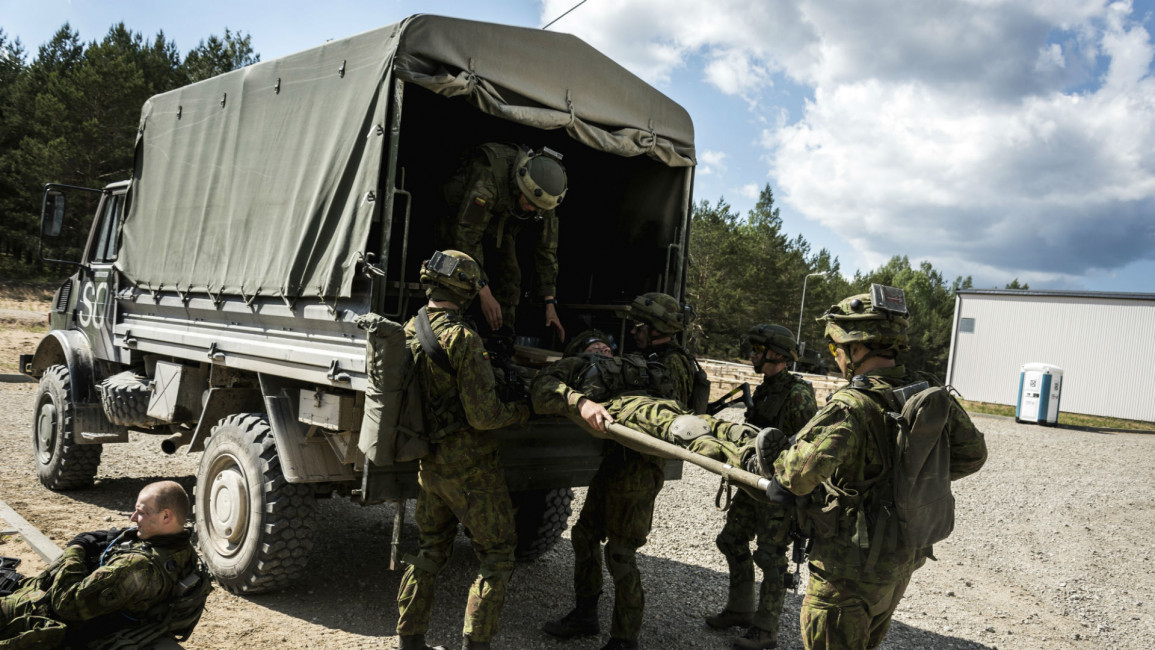Israel for the first time participates in major NATO exercise near Russia
The US Army Europe said the Sabre Strike 18 drill is spread around the region until June 15 as "a demonstration of the commitment and solidarity of the Alliance" at a time when Russia's military manoeuvres are increasingly worrying nearby NATO members.
It stressed, however, that Sabre Strike "is not a provocation of Russia".
Several dozen Israeli paratroopers are being sent to Eastern Europe, proximous to Russia to take part in the exercise.
Until now it has been one huge exercise but this year it was decided to split it into two different scenarios; one scenario is a large exercise of 18,000 fighters from many countries, while the second, in which Israel will take part, will have a more limited number of troops.
During the exercise the fighters will be trained in combat in several countries, contend with airstrikes by foreign forces, and cross bridges and rivers.
The other armed forces participating in the exercise are from United States, Britain, France, Italy, Canada, Latvia, Lithuania, the Netherlands, Macedonia, Poland, Spain, Romania, Norway, the Czech Republic, Romania and NATO.
NATO's secretary-general Jens Stoltenberg told German magazine Der Spiegel in comments published on Saturday that Israel is a partner, but not a member of the alliance and that NATO's "security guarantee" doesn't apply to Israel.
Stoltenberg says NATO is not involved in Middle East peace efforts or in conflicts in the region.
He spoke at a time of rising Israel-Iran tensions.
Israeli Prime Minister Binyamin Netanyahu is travelling to Europe on Monday to push his uncompromising stance on Iran to leaders eager to salvage the nuclear agreement after the United States withdrew from the accord.
Netanyahu, a fierce opponent of the agreement and the Iranian regime, will meet with German Chancellor Angela Merkel, French President Emmanuel Macron and British Prime Minister Theresa May.
Germany, France and the United Kingdom are three of the signatories of the 2015 Joint Comprehensive Plan of Action (JCPOA) between world powers and Iran, aimed at keeping Tehran from acquiring nuclear weapons.



